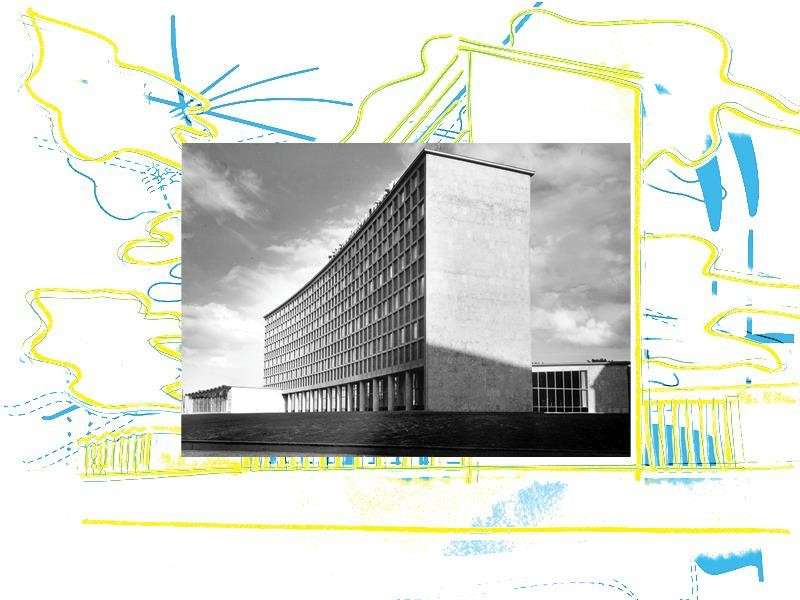An Occasion to Consider This Library's Desire (English)
In collaboration with the class for Performative Arts at the Fine Art Academy in Leipzig (HGB Leipzig), Isabel Lewis approaches the Amerika-Gedenkbibliothek as both architecture and social space. An Occasion to Consider This Library's Desire creates scores – they function like internal guides that speak to the body during learning and reading, addressing its mobility and well-being. How do we move through Berlin's first truly public library? What kinds of encounters take place within it? Lewis encourages visitors to explore new paths and to form connections with the space and with others. The gestures formulated in the scores are personal invitations for visitors to become aware of their physical presence in the space and to imagine new ways of coming together in the Amerika-Gedenkbibliothek. Lewis sees the library as an open landscape where spatial and social organization can be experimented with.
As a showcase for American ideals of openness and democracy, the Amerika-Gedenkbibliothek opened its doors in 1954. The building embodies the gesture of an open hand at the extended end of Friedrichstraße: all social classes and generations were invited. The architecture was designed to be a flexible structure with considerable freedom in the tense climate of the Cold War. Situated close to East Berlin, the library became a new institution for the transmission of knowledge and represented a democratic educational mission modeled after American ideals.
Architectures always envision future gatherings by planning and guiding paths and movements, choreographing those present in space and time. The architecture of the Amerika-Gedenkbibliothek promises possibilities for knowledge dissemination and education, as well as space for community. An Occasion to Consider This Library's Desire demonstrates ways of diverging from such a (spatial) choreography – to develop alternative actions – and to create new approaches to knowledge beyond established orders. Scores for Inner Movements (That May or May Not Have Outward Expression) in Response to the Moving In-/Ex-teriors of the Amerika-Gedenkbibliothek is a series of planned gestures and movements. This choreography invites the bodies present to act, move, and speak together, thereby opening up the possibility of understanding the Amerika-Gedenkbibliothek as a truly public, negotiable space.
Scores for Inner Movements (That May or May Not Have Outward Expression) in Response to the Moving In-/Ex-teriors of the Amerika-Gedenkbibliothek will engage with the ongoing operations of the library through micro-interventions throughout the day. These moments condense into An Occasion to Consider This Library's Desire, a gathering that invites all interested persons to the library's Salon.
An Occasion to Consider This Library's Desire and Scores for Inner Movements are part of the performance series Tracing Influence: Intervening in Western Cold War Architecture. The series is dedicated to four Cold War architectures in Berlin that bear witness to the institutionalization of US power in the promotion of educational institutions and the dissemination of knowledge. Various artists engage performatively with these architectural spaces and their site-specific histories to develop new forms of gathering that question the power dispositif of their past.
Tracing Influence was conceived by Kirsten Maar, Sophie Schultze-Allen, Hannah Strothmann and Luise Willer with the support of Mariama Diagne, Friederike Hartge, Martina Kutsch and Giulia Weis as part of the Collaborative Research Center (CRC) Intervening Arts at the Freie Universität Berlin, in cooperation with the Central State Library Berlin and the Haus der Kulturen der Welt (HKW) Berlin.
